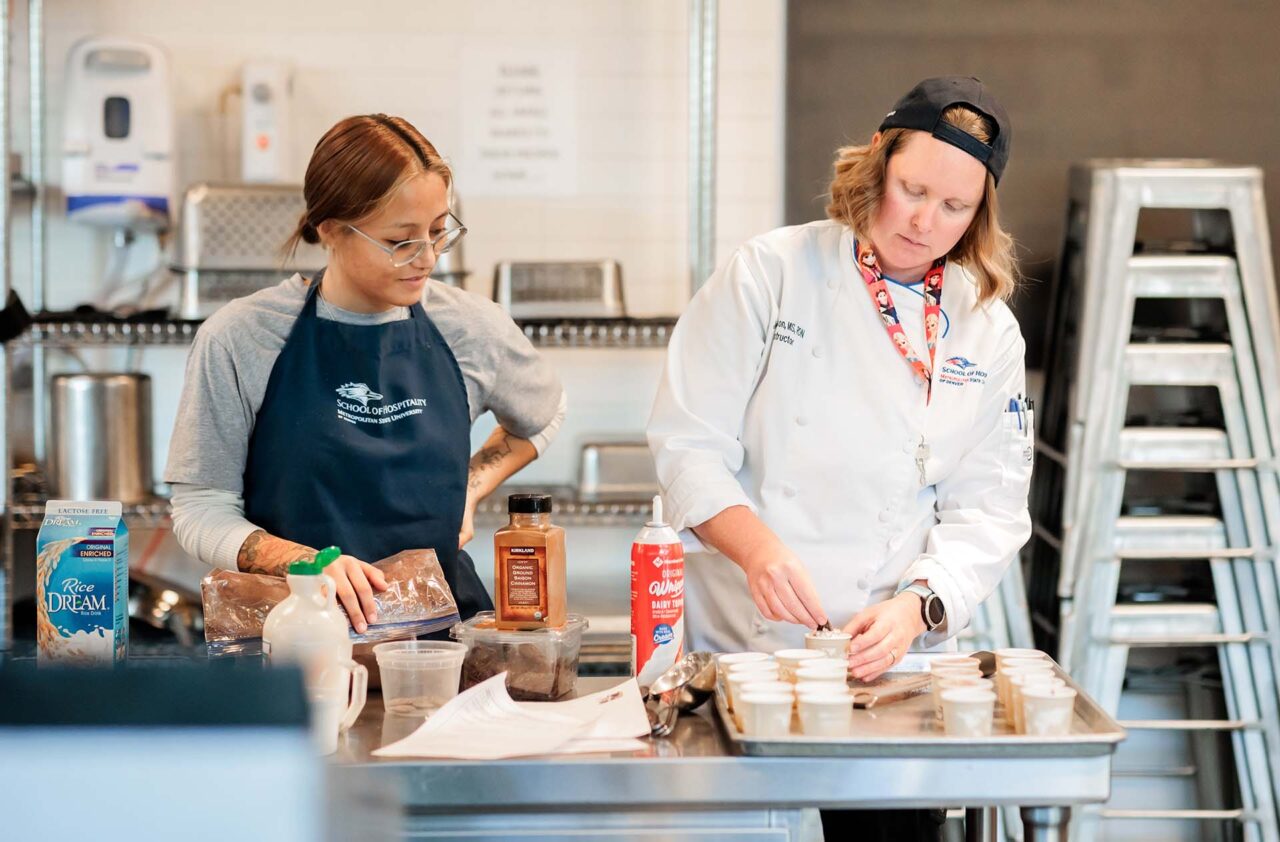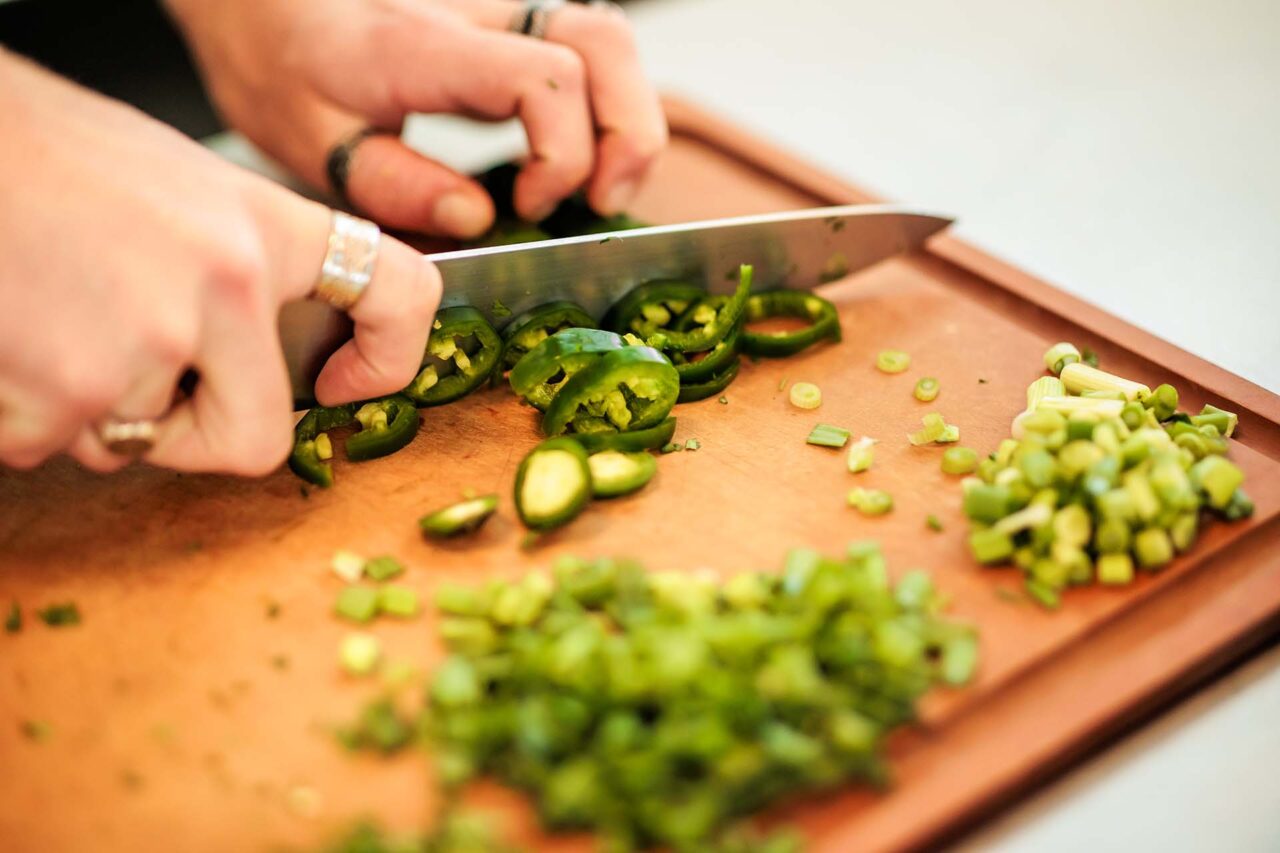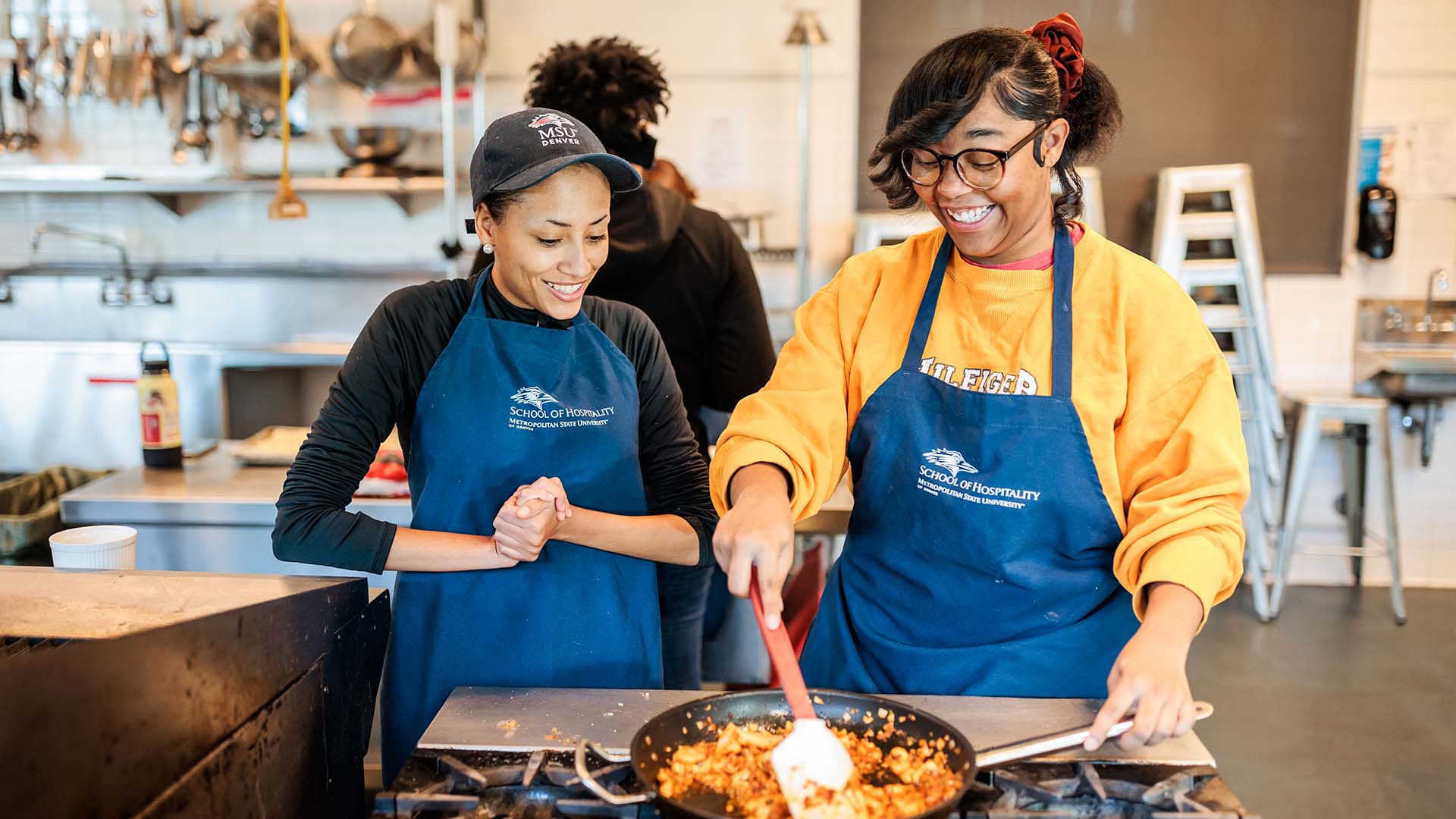Food and hospitality
The demand for nutritious food has never been higher. Here’s how and why you should eat healthy.
As Labor Day approaches, many people turn to meat dishes and throw them on the grill. But Jennifer Watson, Ph.D., RDN, assistant professor in the School of Hospitality at Metropolitan State University of Denver, suggests bringing a few plant-based dishes to the table, especially as she prepares to teach the popular Plant-Based Cooking course this fall.
Why plant-based? Simply put, consumers are asking for it. “Everyone wants to eat healthy in an easy way,” she said. “And from a health perspective, plants contain all the vitamins and minerals that nutritionists want you to eat more of.”
Because plants aren’t very high in calories, you can eat a lot of them, she said. Plus, the benefits of antioxidants, healthy fats and fiber outweigh the saturated fats in meat.

There is no single definition of plant-based diet, Watson added. “Some people think of vegan, others think of raw, unprocessed whole foods,” she said.
Watson takes a “flexitarian” approach. “I try not to eat meat in my classes,” she said, “but that doesn’t mean we never eat milk or dairy products.”
This fall’s plant-based cooking class is a remake of MSU Denver’s popular 2022 course. “We’re now offering it as a permanent course,” she said, adding that there is a waiting list this year.
RELATED TOPICS: 3 Mediterranean recipes with Latin American flavors
The course, along with the asynchronous online Plant-Based Eating course, is required for the new Culinary Nutrition Certificate. “We’re really excited about the idea that cooking and eating impact health,” Watson said. “And we want more people to try (plant-based eating) as a way to improve their health and think about what they’re cooking and what they’re putting in their bodies.”
In her courses, Watson lists many reasons for following a plant-based diet. Some people eat plant-based foods for religious or ethical reasons. Others value the environmental benefits, as eating plants uses fewer resources than eating animals. “Animals need more space and a lot of water – much more than plants,” says Watson. “They also use more energy to process.”
In addition, animals such as cattle produce methane, which contributes to global warming.

And what about protein? She gets asked that question a lot. “To be healthy, you need protein,” Watson says. “Our bodies absorb animal proteins very easily. But we can also get protein from legumes, some vegetables, some grains, dairy products and cheese.”
In addition, supplemental proteins — such as beans and rice or peanut butter on bread — help our bodies get the right mix of nutrients. “It’s like green beans and almonds,” Watson said. “When you combine them, they contain all the amino acids the body needs to make new proteins.”
RELATED TOPICS: What Foods to Eat (and Avoid) for a Long Life
When it comes to eating plant-based foods, Watson encourages people to try new things and eat seasonally. Visit a local farmer’s market and try vegetables you’ve never had before. Her advice? Roast or fry your vegetables, which brings out the flavors and makes the food even more delicious.
Speaking of food, Watson shared some of her favorite recipes to add to your menu this Labor Day.




:max_bytes(150000):strip_icc():focal(749x0:751x2)/Alexa-PenaVega-Carlos-Wedding-010624-4-1a39cad88928450086759a6686eebaa9.jpg)